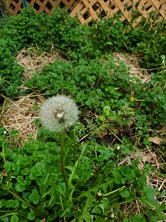
Ecological literacy is both a scientific literacy and a political literacy. Perhaps in a socialist utopia (one that's never existed anywhere but which I guess is still possible) solving climate change, plastic waste, e-waste, species collapse, soil loss, and other abuses of the capitalist way we organized our society, ecological literacy might be a merely scientific literacy. As Albert Einstein wrote in 1949, "I am convinced there is only one way to eliminate these grave evils, namely through the establishment of a socialist economy, accompanied by an educational system which would be oriented toward social goals." But in our capitalist republic, democratic action is needed. It's essential. Paulo Freire, who sadly was not conscienticized to the ecological crises, nevertheless provides a language to be used along the ideas of ecological educational theorists like David Orr, Ivan Illich, and Madhu Suri Prakash.
This week in the news we discovered that our worse fears about capitalist institutions are true. Cloud Peak Energy, one of the largest coal producing corporations, went bankrupt and disclosed years of funding disinformation about climate change. According to the Intercept, they financed the following organizations that deny the scientific consensus on climate change, sowing confusion among American citizens:
Institute of Energy Research
The Center for Consumer Freedom
American Legislative Exchange Council
The Montana Policy Institute
Americans for Prosperity
The Western Caucus Foundation
American Coalition for Clean Coal Electricity
Koch Brothers
National Mining Association
American Coal Council
Chris Horner
To be ecologically literate in 2019 means to know the names of the active enemies of knowledge, the disinformation machines controlled by genuinely bad people who want to kill us for an extra buck. Bruno Latour has shown how the wealthiest have taken climate change science seriously, and have given up on a shared planet, hoping rather for the masses to die off as they protect themselves behind high walls and power. These bad actors are working in our society to destroy our planet and human life on earth. Even if Cloud Peak Energy can't afford to pay these named groups and individuals, other well known corporations are funding this poisonous web of climate denialism.
Paulo Freire famously criticized the banking concept of education, where information is stuffed into students (like they're a bank to be deposited into), and recommended rather that education begin with students naming their world and changing their world. We have to do more than fill students with scientific facts. For many people, facts hold little weight against repeated disinformation; especially disinformation funded by such powerful corporations and billionaires. Praxis, in this sense of naming and changing the world, is both reflection and action. In today's world, the ecological crises are among the most ghastly and visible abuses people need to recognize, to name, to be conscious of; and to act to change.
Educational philosopher Madhu Prakash reminds us that we can begin that change, with hope, now. She discusses dandelions, one of my favorite foods: "What education will it take 98 percent of us—stuck indoors in concrete classrooms and offices—to enjoy harvesting our own dandelions for free, instead of paying grocery stores to refrigerate and fly them all the way north from the southern fields of Mexican peasants?" How much of capitalism can we avoid today, now, by relocalizing our sustenance? Its a small step. Broader activism is also needed. Ecosocialist Phil Gasper writes, "participation in mass movements changes the people who are involved in them." The Sunrise Movement. Extinction Rebellion. "Yellow Vest." Standing Stone. Massive political change is needed, and we benefit from participating in movements. But, small steps are also needed. As the bible says, "The person who is trustworthy in very small matters is also trustworthy in great ones." Its not an either/or; but a both/and. Everybody eats. Everybody entertains themselves. Everybody musics. We can do whatever we do every day in non-capitalist and less-capitalist ways, even as we recognize and name our worlds, and act to change.
DJS
 RSS Feed
RSS Feed
